In Focus
New NAVS Info Bulletins is Published

Decision no. 401-00-2349/2017-16 for accreditation of National Association of Valuers of Serbia
Decision no. 153-00-158/2017-16 for accreditation of National Association of Valuers of Serbia as organizer of professional education of real estate valuers
Decision no. 401-00-2350/2017-16 for accreditation of National Association of Valuers of Serbia as organizer of continuous education
Member login
NAVS is a member of:
TEGOVA launches European Valuation Standards 2025 in lock-step with EU law
TEGOVA launches European Valuation Standards 2025 in lock-step with EU law
The National Association of Valuers of Serbia, a member of the European organization TEGOVA since 2011 and the only authorized for translating European valuation standards, announces the release of the new European Valuation Standards for Real Estate (EVS 2025), which are aligned with EU regulations.
Krzysztof Grzesik, Chairman of TEGOVA and Cédric Perrière, Chairman of the European Valuation Standards Board, said:
“Profound EU-led mutations since the 2020 edition explain the many new aspects of EVS 2025:
- EVS 6 Valuation and Energy Efficiency now sets out in detail the methodology the valuer must follow to determine Market Value in an EU-legislated context of rapid mandatory renovation of the worst performing building stock. The essentially residual approach adopted has also been enhanced by a review of the residual methods in Part II Methodology.
- The revised Capital Requirements Regulation’s valuation provisions – including a new ‘property value’ comprising ‘prudently conservative valuation criteria’ – are treated in depth in European Valuation Guidance Note (EVGN) 2 on Valuation for Mortgage Lending, a key tool for combining Market Value and ‘property value’ in the appraisal of mortgage collateral.
- A new Guidance Note (EVGN 4) on Valuation of Agricultural Property covers all aspects including climate change and technology and data.
- Part VI Valuation and Sustainability has undergone an in-depth revision and expansion to take account of the vast changes brought to land and buildings by the European Green Deal.
- Part X European Union Legislation and Property Valuation covers the extremely rich legislative production since the last edition.
The Minimum Educational Requirements (Part IV) have been modernised and the entire Blue Book has been reviewed to enhance its use as an essential and didactic practice tool that is also intelligible to clients and the authorities. A highlight of this effort is the complementing of the very successful EVS Valuation Report for Residential Property with template reports for office property (EVGN 3. II) and agriculture (Annex to EVGN 4).”
European Valuation Standards 2025 at: www.tegova.org
The European Group of Valuers’ Associations (TEGOVA) unites 74 national valuers’ associations from 38 countries representing 70 000 qualified valuers either self-employed or employed by specialist consultancies, private sector companies, government departments or financial institutions both local and international. Its European Valuation Standards (EVS) are cited as reliable standards for the valuation of residential immovable property for mortgage lending purposes in the EU Mortgage Credit Directive and have been given precedence over all other standards by the European Central Bank in successive editions of its Asset Quality Review manual for the updating of banks’ real estate collateral values.
Warsaw General Assembly
AN EVENTFUL TEGOVA SPRING MEETING, WARSAW 15/17 June 2023
Read more at:
The IVSC has published the Perspectives Paper: The Integration of ESG in Valuation Practices – IVSC Global Survey 2024.
🌍 Global Insights on ESG in Valuation
The IVSC has published the Perspectives Paper: The Integration of ESG in Valuation Practices – IVSC Global Survey 2024. This annual survey gathered insights from 542 valuation professionals across 85 countries, providing a detailed analysis of how Environmental, Social, and Governance (ESG) factors are influencing valuations.
The report explores:
– How ESG is being incorporated into valuations across markets and asset types.
– The opportunities and challenges in ESG integration, including data reliability and comparability.
– The role of International Valuation Standards (IVS) in supporting consistent and transparent practices.
The findings reflect diverse perspectives on ESG, with approaches varying across regions and industries. Whether you see ESG as an opportunity or have concerns about its practical implications, this report offers valuable insights into the evolving landscape.
Download the report to explore the global trends and contribute to the conversation: https://www.ivsc.org/esg-survey-2024/
How do you value a renewable energy project?
In spite of the rapid global growth of the sector, determining the value of a wind, solar, biomass or hydro energy project is no easy feat.
How do you achieve a realistic estimate of cash flow? What is an appropriate discount rate? And, how useful is the weighted average cost of capital (“WACC”) in determining a discount rate when required returns are measured against stock market performance?
https://www.ivsc.org/news/article/how-do-you-value-a-renewable-energy-project
Practice Guidelines Expert Reports and AI
EuroExpert in its objectives includes the development, promotion and convergence of professional standards for experts within the European Union. As part of this objective, it has agreed on practice guidelines for the use of AI when giving expert evidence. It is recognised that there are different systems of law and many jurisdictions in Europe, any of which may impose different or additional duties and responsibilities which must then be complied with by the Experts.
General – Artificial Intelligence
- Generative Artificial Intelligence (hereafter AI) is a form of artificial intelligence that can create new forms of content, including text, images or sounds, based on patterns and data acquired from a body of training material. This training material may include information obtained by “scraping” public and private text sources to build large-scale language models.
- Following Art. 3 Nr 1 of Regulation (EU) 2024/1689 laying down harmonised rules on artificial intelligence from 13th June 2024 an AI system’ means a machine-based system that is designed to operate with varying levels of autonomy and that may exhibit adaptiveness after deployment, and that, for explicit or implicit objectives, infers, from the input it receives, how to generate outputs such as predictions, content, recommendations, or decisions that can influence physical or virtual environments.
- These guidelines apply to the use of Artificial Intelligence (AI), Large Language Models (LLMs) and Generative AI (collectively referred to as “AI”) by experts and are directed to give guidance.
- AI is capable of being used to assist experts with various tasks, including drafting documents and summarising information.
- To avoid any doubt, for the purposes of these guidelines, AI does not include technology or functionality which:
a. merely corrects spelling or grammar, provides transcription, assists with formatting, supports in improving text quality or translation and otherwise does not generate substantive content;
b. generates chronologies from original source documents;
Expert Reports
- Expert reports are required to assert the opinions of the experts, and their reasoning process.
- Experts are responsible for the content of the report at all times.
- When Experts use AI applications, they have to have adequate knowledge and understand the application they use, can recognise risks and apply the AI applications in a responsible manner.
- Depending on the appointment and/or the instructions to the expert prior agreement with the appointer might be necessary.
- When experts use AI applications for any purpose in preparing an expert report for courts, they shall:
- Respect the confidentiality of the data they work with by using AI applications that provide sufficient guarantees of data confidentiality or by not using confidential data in the AI application,
- Ensure accordance with laws and regulations in the field of privacy and data protection,
- Keep records and, in an annex to the report, identify how AI applications were used (for example any prompts used, any default values used, and any variables set),
- Make full disclosure if the use of AI is regulated or addressed by any relevant code of practice or principles binding on or applicable to the expert.
- Experts shall ensure transparency about the use of AI applications by adequately disclosing their use in the report.
- Any use should classify:
- The AI application, version and model used,
- The information entered or question asked (prompt),
- The result(s) obtained,
- Any sources mentioned,
- The way in which the expert has processed or used the result,
- The justification why the results used are appropriate and relevant.
https://euroexpert.org/standards/practice-guidelines-expert-reports-and-ai/




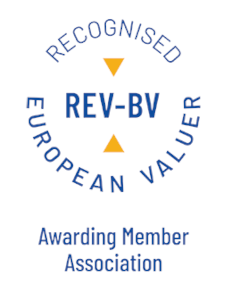
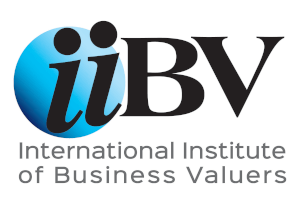
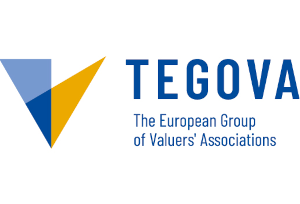
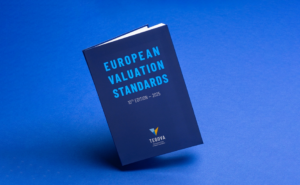
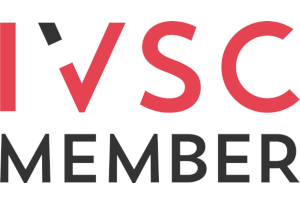
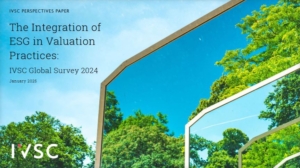
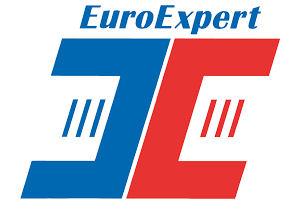
New iiBV Course: Applying the Capital Asset Pricing Model to Business Valuations
We’re thrilled to announce the launch of our new course, Applying the Capital Asset Pricing Model to Business Valuations. This course is now available for purchase and is an excellent resource for professionals looking to deepen their knowledge and skills in business valuation.
Course Details:
Participants who complete the course will receive a certificate of completion, perfect for sharing on LinkedIn or other social media platforms to showcase their achievement.
A Recap of the Business Valuation Summit in Bangalore, India
The Business Valuation Summit was held in Bangalore, India January 17, 2018, to discuss the draft regulations for a Registered Valuer Organization (RVO), issued by the Ministry of Corporate Affairs; and the valuation education and accreditation required to support India’s rapid growth in the global economy. Organized by I-Deals Network and the International Institute of Business Valuers (iiBV), with sponsors including International Valuation Standards Council (IVSC), Business Valuation Resources, Duff & Phelps and Annveshan, the Summit featured leading experts from India and eight nations in valuation, private equity, venture capital and corporate users.
https://iibv.org/recap-bv-summit-bangalore-india/